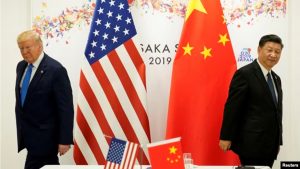
Over One Million Apply for Jobs at Chinese Nuclear Firm, Exposing Deepening Youth Employment Crisis

A recent recruitment drive by China National Nuclear Corporation (CNNC) drew nearly 1.2 million job applications, sparking widespread alarm over the state of youth employment in China and raising concerns about the country’s broader economic outlook.
In a WeChat post on Saturday, CNNC announced it had received 1,196,273 applications for 1,730 job categories, adding a light-hearted starry-eyed emoji — a gesture that backfired as it triggered an outpouring of frustration on social media.
The overwhelming number of applicants for a limited number of vacancies — later clarified to be approximately 8,000 positions — highlighted the grim job prospects facing China’s young graduates, despite repeated government assurances that the employment situation remains “generally stable.”
Many netizens accused CNNC of insensitivity, accusing the state-owned firm of treating the employment crisis as a vanity metric. “It felt like a public execution,” wrote one user on Douyin (China’s TikTok). “You’re telling me I’m a failure, along with a million others.”
In a follow-up post, CNNC clarified that the figures referred to job categories, not individual openings. It explained that candidates could apply to up to 20 positions each, and that about 425,000 unique individuals had applied. The campaign was held across 12 top universities in 10 cities, attracting over 3,100 students at career fairs.
A Harsh Labor Market Reality
While Chinese authorities reported a youth unemployment rate of 16.9% in February — already up from 16.1% in January — the true figure is likely higher. China stopped publishing regular youth unemployment data in mid-2023 after the jobless rate among those aged 16 to 24 (excluding students) hit a record 21.3% in June.
Social media has become an outlet for disillusioned job seekers. The hashtag #IPretendedToGoToWorkToday has gone viral on Douyin, with users humorously documenting how they pass time while unemployed — a grim reflection of the state of the economy.
“Even listed companies with thousands of applicants sometimes hire just one or two people,” said one user. “I’ve had three jobs in two years — one company ran out of money, another laid me off.”
Influencer Bole Talks Technology described the market as “cruel.” His company recently opened a developer role and received over 1,000 applications within hours, prompting them to shut it down the same day.
He Fan, a Shanghai-based tech worker, noted a stark drop in interview opportunities. “Before, submitting a resume could land five interviews a week. Now it’s maybe one or two.”
Economic Pressures and Parental Privilege
The bleak market conditions have driven many young Chinese to abandon entrepreneurial ambitions and instead rely on parental connections for office jobs. “All office positions are now secured through family influence,” said Jerry, a master’s student.
Even emerging tech firms like AI powerhouse DeepSeek have not been able to reverse the tide. While the sector offers some hope, job growth remains sluggish overall.
Trade Tensions Deepen the Crisis
Adding further pressure is the escalating U.S.-China tariff war. On Wednesday, U.S. President Donald Trump raised tariffs on Chinese imports to 125%, following Beijing’s retaliatory hike to 84%. The tit-for-tat moves are expected to hit China’s export-driven economy hard.
“The employment rate of college graduates is now under 30%,” said commentator Wang Jian, adding that even without the tariff war, this year’s job market was projected to be worse than last year’s.
State-Owned Enterprises as Safe Havens
In this climate, state-owned enterprises like CNNC are increasingly seen as secure employment havens — further intensifying competition.
“Scenes like the CNNC receiving over a million applications may become the new normal,” said economist Si Ling. “While state media continue to project confidence, CNNC’s recruitment numbers expose the economic reality behind the façade.”
Although Beijing has set an official GDP growth target of 5% for 2025, economists warn that ongoing trade tensions and domestic structural issues may undercut those ambitions — leaving young job seekers to face an ever more uncertain future.












Comments